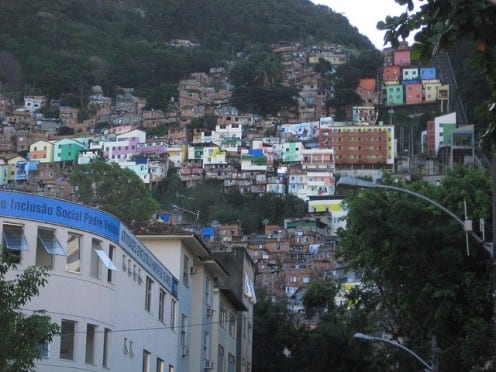They flirt, they share porn and they gossip
By Juliano Andrade Spyer, on 5 February 2016

Image courtesy:
thegillinator.
The last four months of 2015 were tough. I was locking myself in a claustrophobic student carrel every day, spending 9 hours staring at a computer screen but not being able to finish the final draft of my book. I began having trouble sleeping and pictured a clock ticking everywhere I went. But the source of this anxiety – as I realized later – was a prolonged and unconscious struggle to say something about my research while the evidence was pointing the other way. I wanted very badly to conclude on my book saying that this poor settlement in Brazil had a lot of problems, but that because of social media things are changing for the better. But they aren’t.
This realization came after a long conversation with a friend that kindly took the time to read a previous draft of my book. The last chapter is about the effects of social media on relationships between people that are not relatives or friends. I did not notice this before, but I ordered the cases in a way to construct an argument that social media was empowering locals to protest against injustices. But this friend summarized her impression of that chapter saying that despite all this fuss about social mobility in Brazil, people are still living as second rate citizens. If a relative is murdered, not just they have to accept that the police will not investigate: they also have to keep quiet or risk being subjected to more violence.
The internet and particularly social media is everywhere in this settlement. Teenagers and young people are crazy about it but adults and older folks also share the excitement. There is the enchantment with the new possibilities of being in touch with people and also the pride related to having a computer and to be able to use it. It shows that they are not as “ignorant” [illiterate] as others might have thought and the PC looks good in the living-room next to the flat screen TV. But how much of this represents real change and how much is – as my friend’s commentary indicates –just an appearance of change?
In short, I wanted to sympathise with “the oppressed” and also show the internet is empowering. And in order to claim that, I denied the basic evidence of what they do with social media. It is not about learning, though that happens. (For instance, they are much more interested in reading and writing in order to better use things like Facebook and WhatsApp.) However, their reason for wanting to be on social media is mostly to flirt, to share some (very) gruesome videos and to spy on one another and gossip about it.
Evangelic Christianity is much more clearly responsible for “positive” change there than the internet or social media: the protestant ideology promotes literacy and education, helps people get and keep their jobs, reduces the incidences of alcoholism and family violence. Social media, on the other hand, is usually not for opening and expanding the access to information and to new relationships, but to restore and strengthen local networks. Facebook and WhatsApp are in some cases a possibility for young people to harness the desire to study and move beyond their subordinate position in society, but it is also intensely used for social control – i.e. for spying and spreading rumours attacking people who want to challenge conformity.
The picture I have now is not as neat and “positive”. But perhaps the best contribution an anthropological research has to offer is just that: to challenge generalizations and expose how contradictory human relations can be.
 Close
Close





